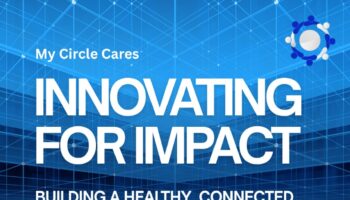A stagnant career is becoming a thing of the past in today’s ever changing society. The job landscape has changed due to technological breakthroughs, changing market needs, and an increasingly interconnected global economy. As a result, career success now heavily depends on lifelong learning. Continuously learning and adapting professionals are better able to be innovative, stay relevant, and succeed in their careers over the long run.
Lifelong Learning: A Crucial Professional Need
The continuous, voluntary pursuit of information and skills throughout one’s life is referred to as lifelong learning. As opposed to traditional education, which frequently has a predetermined beginning and conclusion, lifelong learning is ongoing and self-directed. Because sectors are always changing, people at all stages of their careers need to adopt this approach.
Many vocations are changing and creating new ones in the age of automation and artificial intelligence. By gaining new skills and abilities that increase their adaptability and resilience in the face of uncertainty, lifelong learners are able to remain ahead of these changes.
Staying Relevant in a Dynamic Job Market
One of the main reasons lifelong learning is crucial for career success is that it helps individuals stay relevant in a dynamic job market. Whether it’s mastering the latest software, developing leadership skills, or understanding new industry trends, continuous learning ensures that professionals remain valuable assets to their organizations.
Moreover, staying current with industry developments enhances employability. Employers are increasingly looking for candidates who not only have the right qualifications but also demonstrate a commitment to personal and professional growth. Lifelong learning signals to employers that you are proactive, motivated, and ready to tackle new challenges.
Unlocking New Career Opportunities
Lifelong learning also opens the door to new career opportunities. By diversifying your skill set, you can pivot to different roles or industries, or even pursue entrepreneurial ventures. For example, learning a new programming language or acquiring project management certification can expand your career options, making you a more attractive candidate for a wider range of positions.
Additionally, continuous learning can lead to promotions and higher earning potential. As you build expertise and accumulate knowledge, you become a more valuable resource within your organization, which can translate into career advancement and financial rewards.
Development and Satisfaction on a Personal Level
Beyond its advantages for the workplace, lifelong learning fosters personal development and fulfillment. Learning experiences improve creativity, maintain mental acuity, and provide a feeling of accomplishment. When you observe real development in your knowledge and abilities, it can also give you a sense of fulfillment and purpose.
Furthermore, a growth mindset—the conviction that aptitude and intelligence can be enhanced with hard work and commitment—is fostered by lifelong learning. It takes this kind of thinking to overcome obstacles and succeed in your career over the long run.
How to Develop a Habit of Lifelong Learning
The abundance of information available has made it simpler than ever to establish a lifetime learning habit. There are numerous ways to increase your knowledge, including podcasts, professional networks, webinars, and online courses.
Set Learning Goals: Identify areas where you want to improve and set specific, achievable learning goals.
Utilize Online Platforms: Platforms like Coursera, Udemy, and LinkedIn Learning offer flexible courses on a variety of topics, allowing you to learn at your own pace.
Stay Curious: Adopt a curious mindset, always asking questions and seeking to understand the “why” behind things.
Join Professional Communities: Engage with professional groups or networks to stay updated on industry trends and best practices.
Read Regularly: Reading industry publications, books, and articles helps you stay informed and inspired.
Conclusion: Learning as a Lifelong Career Investment
Lifelong learning is more than just a career strategy—it’s an investment in yourself and your future. By continually seeking new knowledge and skills, you can navigate the changing job landscape with confidence, seize new opportunities, and achieve lasting career success. In the end, learning is not just about keeping up with the world—it’s about staying ahead of it.







